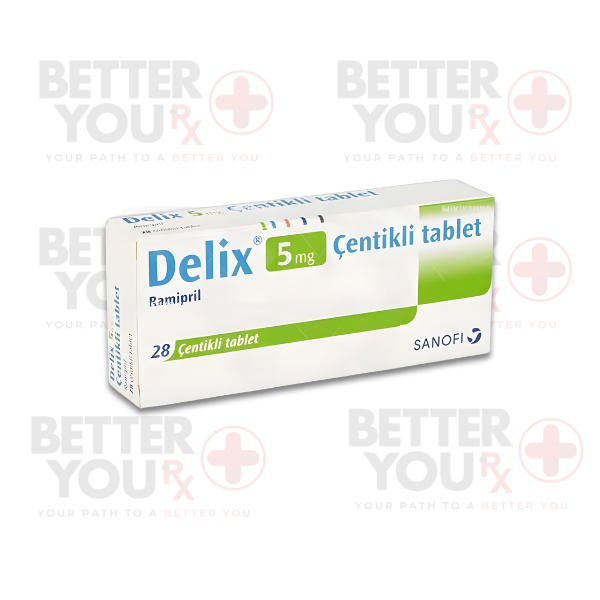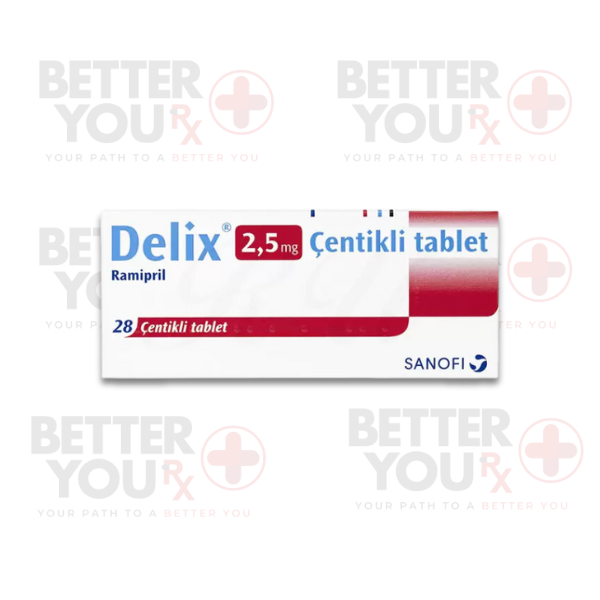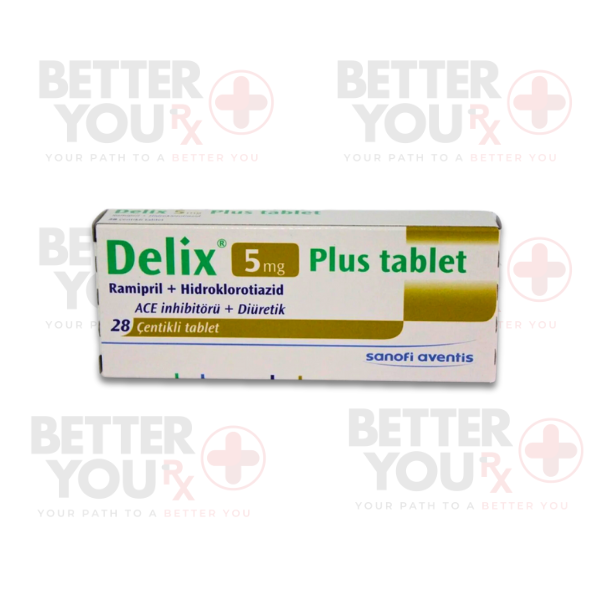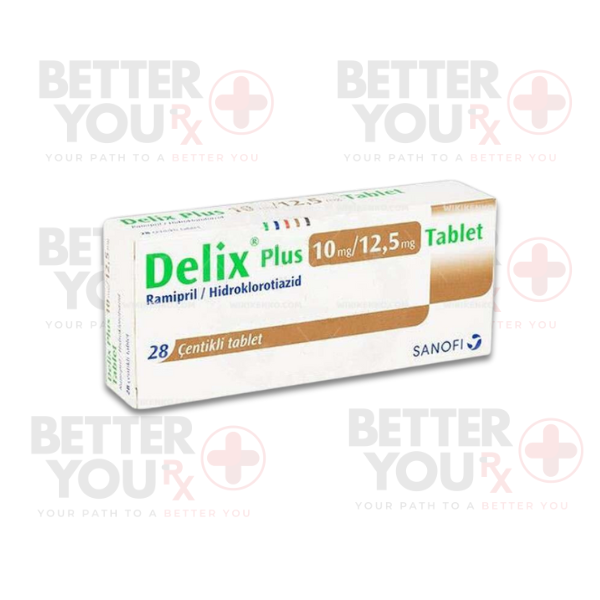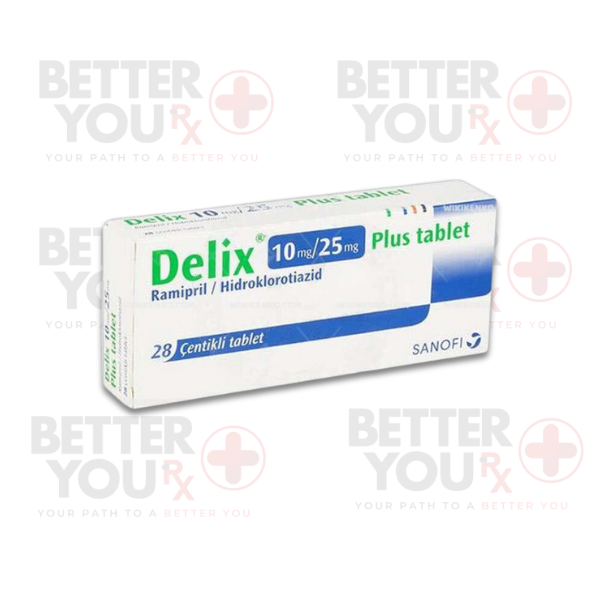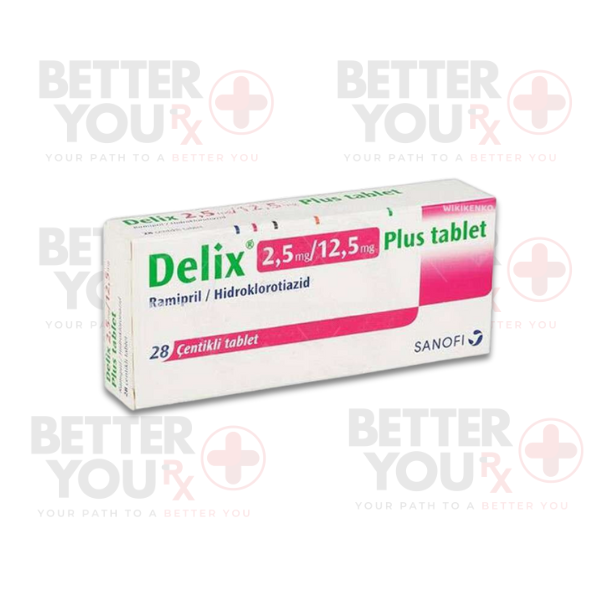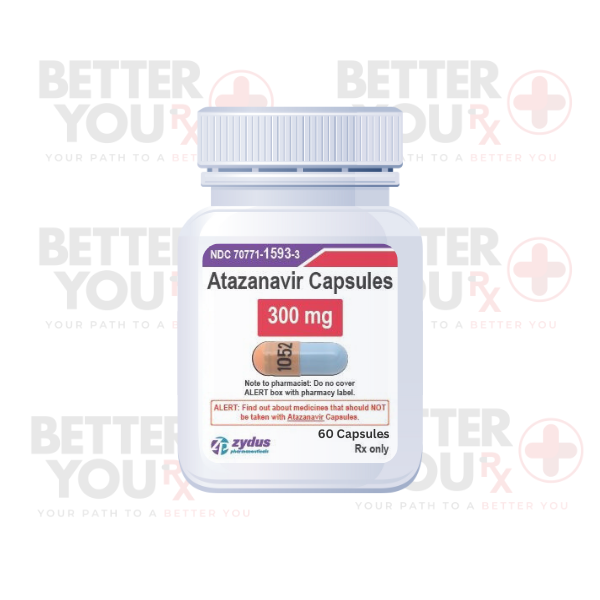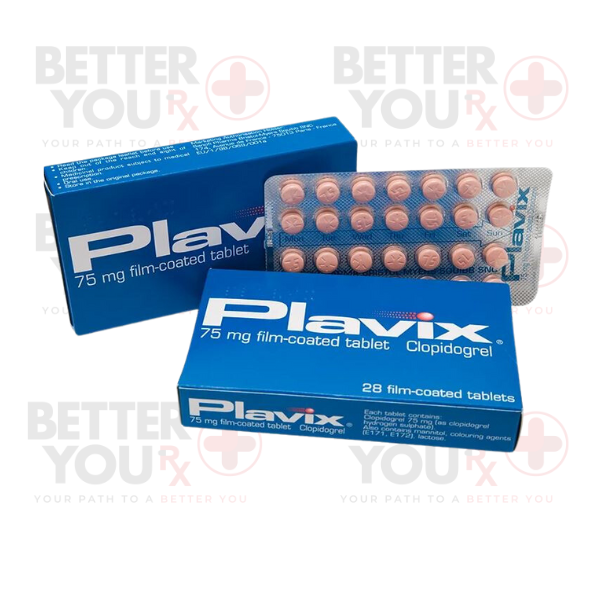| Uses of Delix |
Delix is indicated for several important medical conditions, including:
Hypertension: Delix is used to manage high blood pressure, helping to prevent complications such as stroke, heart attack, and kidney damage. Maintaining optimal blood pressure is crucial for overall health.
Heart Failure: It is also prescribed for patients with heart failure, where it helps improve heart function and relieve symptoms like shortness of breath and fatigue. By reducing the pressure in the heart, Delix enhances exercise tolerance and quality of life for patients with this condition.
Post-Myocardial Infarction: Delix may be used in the treatment of patients who have had a heart attack, as it can help improve survival rates and reduce the risk of subsequent heart problems.
Diabetic Kidney Disease: For patients with diabetes, Delix may help protect kidney function and slow the progression of diabetic nephropathy.
|
| Benefits of Delix |
Delix offers numerous health benefits, including:
Effective Blood Pressure Control: Delix effectively reduces both systolic and diastolic blood pressure, lowering the risk of cardiovascular events and related complications.
Improved Heart Function: In patients with heart failure, Delix enhances cardiac output and reduces the symptoms associated with fluid retention, such as swelling and breathlessness.
Kidney Protection: Delix is beneficial for patients with diabetes, as it reduces intraglomerular pressure in the kidneys, thereby providing protective effects and delaying the onset of kidney damage.
Improved Quality of Life: By alleviating the symptoms of hypertension and heart failure, Delix contributes to a better quality of life and increased physical activity levels for patients.
|
| Side Effects of Delix |
While Delix is generally well-tolerated, some patients may experience side effects. Common side effects include:
Cough: A persistent dry cough is one of the more common side effects associated with ACE inhibitors like Delix.
Dizziness or Lightheadedness: Especially when starting the medication or increasing the dose, some patients may experience dizziness, particularly upon standing (orthostatic hypotension).
Fatigue: Patients may feel unusually tired or weak when adjusting to the medication.
Nausea: Gastrointestinal discomfort, including nausea, may occur.
Hyperkalemia: Elevated potassium levels in the blood can occur, leading to potential complications.
Less common but more severe side effects can include:
Angioedema: Swelling of the face, lips, or tongue, which may indicate a serious allergic reaction.
Kidney Dysfunction: Changes in kidney function, which should be monitored through regular blood tests.
|
| How to Use Delix |
To achieve optimal results with Delix, follow these guidelines:
Dosage: Take Delix as prescribed by your healthcare provider. The dosage will depend on your specific condition and response to treatment. It is typically taken once or twice daily.
Administration: Swallow the tablets whole with a glass of water. Do not crush or chew them, as this may affect the release of the medication.
Consistency: Take Delix at the same time each day to maintain even levels of the medication in your bloodstream.
Missed Dose: If you miss a dose, take it as soon as you remember. If it's almost time for your next dose, skip the missed dose. Never double up on doses.
|
| How Delix Works |
Delix works through the inhibition of angiotensin-converting enzyme (ACE), a crucial component in the renin-angiotensin-aldosterone system (RAAS). Here's how it operates:
ACE Inhibition: By blocking ACE, Delix reduces the formation of angiotensin II, a potent vasoconstrictor that narrows blood vessels and raises blood pressure.
Vasodilation: With lower levels of angiotensin II, blood vessels relax and widen, resulting in decreased vascular resistance and lower blood pressure.
Reduced Aldosterone Secretion: ACE inhibition also decreases the secretion of aldosterone, a hormone that causes the kidneys to retain sodium and water, further helping to lower blood volume and blood pressure.
Decreased Cardiac Workload: The reduction in blood pressure and fluid volume decreases the strain on the heart, improving its efficiency and function, particularly in patients with heart failure.
|
| Safety Advice and Precautions |
Pregnancy
Delix is classified as a pregnancy category D medication, indicating that it can cause harm to a developing fetus. It is contraindicated during the second and third trimesters. Women who are pregnant or planning to become pregnant should consult their healthcare provider for alternative treatments.
Breastfeeding
Limited data is available on the excretion of Delix in breast milk. While there may be minimal risk to nursing infants, it is essential to discuss with your healthcare provider before using Delix while breastfeeding.
General Precautions
Monitor Blood Pressure: Regular monitoring of blood pressure is essential during treatment with Delix to ensure it remains within a safe range.
Kidney Function Monitoring: Your doctor may order periodic blood tests to check your kidney function and potassium levels, particularly in patients with pre-existing kidney issues or those taking other medications that affect kidney function.
Drug Interactions: Inform your healthcare provider about all medications, supplements, and herbal products you are taking, as certain drugs may interact with Delix.
|
| What if You Forget to Take Delix? |
If you forget to take Delix, take it as soon as you remember. If it's almost time for your next dose, skip the missed dose and return to your regular dosing schedule. Do not take two doses at once to make up for a missed dose.
|
| Overdosing |
In the event of an overdose, symptoms may include severe hypotension (low blood pressure), dizziness, fainting, or fast heart rate. Seek immediate medical attention or contact a poison control center if an overdose is suspected.
|
| How to Store Delix |
Storage Conditions: Store Delix at room temperature, away from moisture and direct sunlight. Keep it in its original packaging.
Safety Precautions: Ensure that the medication is kept out of reach of children and pets to prevent accidental ingestion.
Expiration Date: Do not use Delix beyond its expiration date, and dispose of any unused medication properly.
|
| FAQs About Delix |
Can Delix cause allergic reactions?
Yes, some patients may experience allergic reactions, including angioedema. If you notice swelling of the face or difficulty breathing, seek medical attention immediately.
How long does it take for Delix to start working?
Delix may begin to lower blood pressure within a few hours; however, the full effect may take several days to weeks of consistent use.
Is it safe to use Delix if I have kidney problems?
Patients with existing kidney issues should be closely monitored while taking Delix. Your healthcare provider may adjust your dosage or monitor your kidney function more frequently.
What lifestyle changes should I consider while on Delix?
It is essential to adopt a heart-healthy lifestyle, including a balanced diet, regular physical activity, weight management, and quitting smoking to enhance the effectiveness of Delix.
Are there any dietary restrictions while taking Delix?
Limit potassium-rich foods and salt substitutes containing potassium unless advised otherwise by your healthcare provider, as Delix can increase potassium levels in the blood.
|
| Variants |
2.5 mg 28 Tablets, 5 mg 28 Tablets, Plus 2-5-12-5mg 28 Tablets, Plus 10/25 mg 28 Tablets, Plus 10/12.5 mg 28 Tablets, Plus 5-12-5mg 28 Tablets
|

